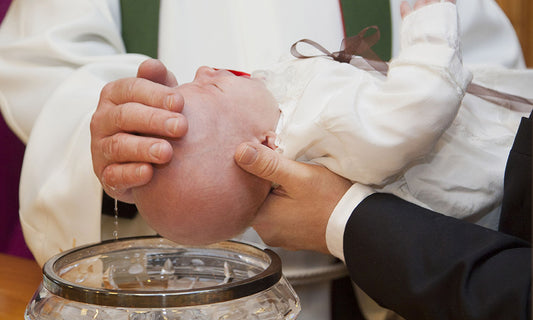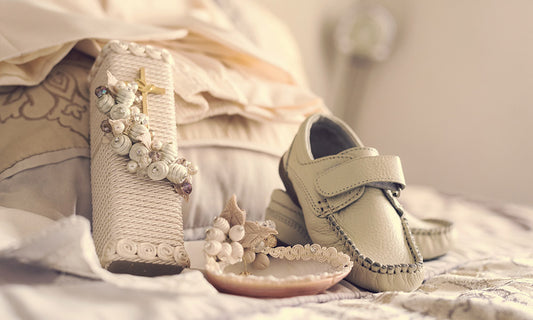
Adult Baptism
If you are an adult who has not been baptised a Christian, but are thinking about becoming a Catholic, then the first step is to go to the local church and ask how they go about receiving people into the Church. Most churches are delighted to welcome new people into their church. You will probably be asked to participate in instructions. Sometimes the priest does this himself; some churches have a programme - the Rite of Christian Initiation of Adults or R.C.I.A. - to prepare people for baptism.
Joining the Community
When you ask for Baptism you are asking to become a member of the Catholic Church. You will be expected to take part in the life of that community on a regular basis.
Committing your life to God
Baptism is the sacrament in which we commit ourselves to God. We proclaim our faith in God, Father, Son and Holy Spirit and we promise to avoid evil and to do good. The baptism ceremony for adults is similar to baptism of children except that you make the baptismal promises yourself. Instead of godparents adults have sponsors whose role is to encourage you in the catholic faith. Traditionally adult baptisms take place during the ceremony of the Easter Vigil. In some parishes, therefore, you might be asked to wait for Easter for Baptism.
Does the Catholic Church recognise Orthodox baptism?
The Catholic Church recognises baptism in the Orthodox churches whom she calls 'sister churches'. The Catholic Church recognises baptism in a number of Christian churches. What is essential for Baptism is that the person be baptised by the celebrant saying the words, "I baptize you in the name of the Father, and of the Son, and of the Holy Spirit" while either pouring water on the head of the person or immersing the person in water.
Can a person who has been baptised in one church be baptised again in the Catholic Church?
A person may only be baptised once. To appreciate this, you might consider the effects of baptism. When you were baptised you became an adopted child of God, a new creature, and were given a share in God's nature. You became a member of Christ, a co-heir with Christ. This great gift is permanent and cannot be repeated. Therefore baptism cannot be repeated.
Is baptism always celebrated on Sunday?
When you were baptised you were joined with Christ, united with Him in his death and resurrection. The Church celebrates Christ's resurrection, firstly at the Easter Vigil, when the celebrant blesses the Baptismal water. The Easter Vigil is the very best time for the celebration of baptism. Certainly this is the most suitable time for the baptism of adults. The Church also celebrates the death and resurrection of Christ on each Sunday. Therefore the Church encourages baptism to be celebrated on a Sunday.
Why do I need a recent Baptismal certificate?
Before you receive any other sacrament, you need to have been baptised. Baptism is the first part of initiation into the the Church, into the Body of Christ. So Baptism is a prerequisite for the reception of other sacraments, for Eucharist, Reconciliation, Confirmation, Holy Orders, Marriage and for the making of profession of vows in an institute of consecrated life. Prior to the reception of these sacraments, the priest must check that you have been baptised. All that is necessary in some cases is that a copy of the certificate be presented to the priest. For marriage, it is necessary to prove that you are free to receive the sacrament or to make profession. In these cases a recent baptismal certificate is required. For example: When a person marries a note is written in the baptismal register where the person was baptised. Therefore a recent baptismal certificate would show whether or not the person was already married.
Does the Church keep a record of Baptisms? Who has access to them?
The Church does keep records of baptisms. This is essential as baptism is necessary for the reception of other sacraments. A person may not receive other sacraments unless she or he has first been baptised. Therefore a priest, or his delegate, may need to check baptismal records of someone presenting for another sacrament. The Church does observe privacy legislation. No information would be given out that contravened this legislation.
This material was prepared by Elizabeth Delaney sgs, Information Officer, Australian Catholic Bishops Conference with thanks to Catholic Ireland for the use of their content.


